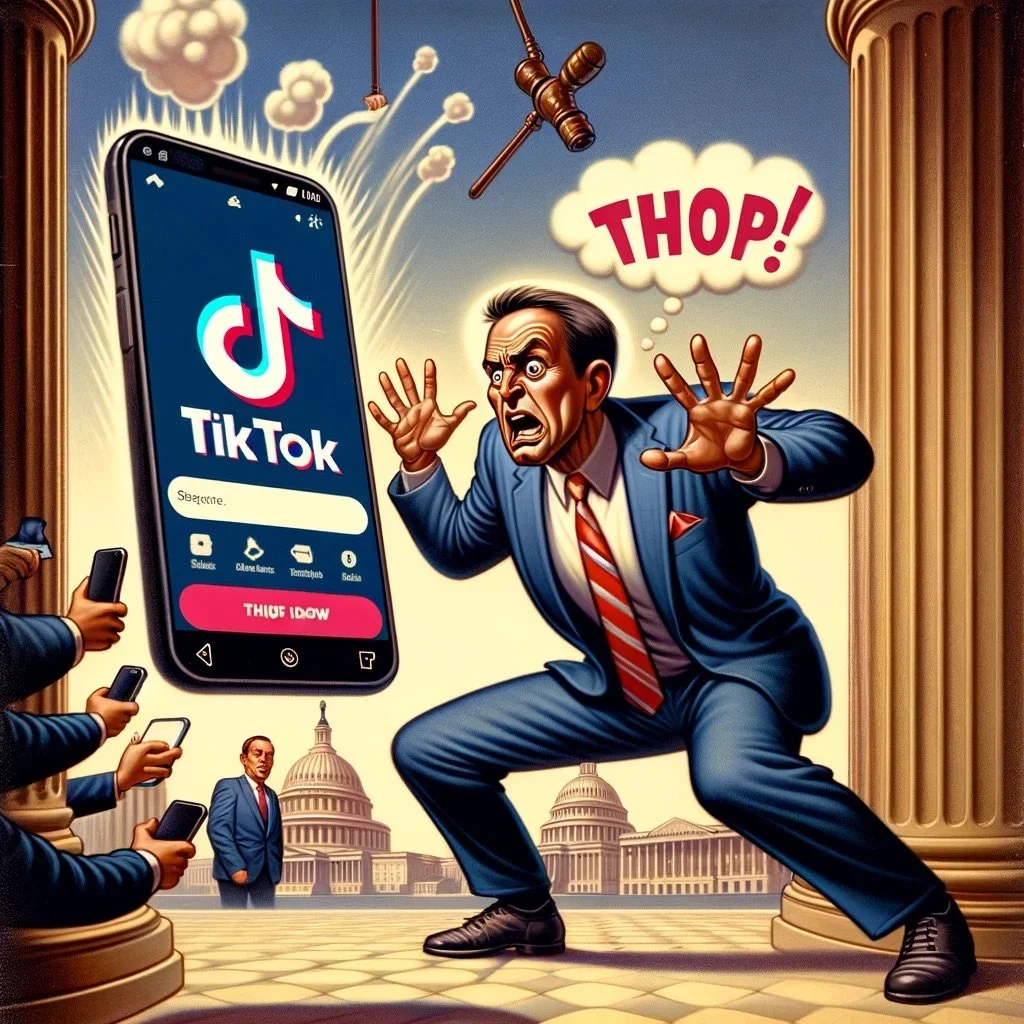Media.com CEO James Mawhinney Reacts to Proposed TikTok Ban, Highlights Broader Issues in Social Media
In an unprecedented move that has stirred significant debate across the United States, the House of Representatives voted overwhelmingly to pass a bipartisan bill that could force ByteDance, the parent company of TikTok, to sell the popular social media app or face a ban on all U.S. devices. While the legislation’s future in the Senate remains uncertain, the proposed TikTok ban has sparked discussions about privacy, national security, and the free speech rights of millions of Americans.
James Mawhinney, Founder & CEO of Media.com, offers a unique perspective on the situation, emphasizing that the issue at hand extends well beyond the geopolitical tensions with China. According to Mawhinney, the rapid spread of misinformation on platforms like TikTok is a symptom of a larger problem faced by all social networks that prioritize advertising revenue over profile transparency and authenticity.
“The decision to ban TikTok in the US is undoubtedly multi-layered and extends beyond risks associated with China. The platform can be weaponized to spread misinformation due to its ability to distribute content to millions of people instantaneously from unverified sources,” Mawhinney stated. He pointed out that TikTok is not the only platform grappling with these challenges, highlighting a widespread issue in the social media ecosystem.
Mawhinney’s insights shed light on the broader implications of the proposed ban. He argues that we are only seeing the "tip of the iceberg" as governments and regulators worldwide wake up to the real-world threats posed by digital platforms. From online bullying to the spread of unverified information, the digital environment is fraught with challenges that need addressing.
At Media.com, Mawhinney champions a different approach to social media, one that emphasizes information integrity and accountability. “All profiles on the Media.com network must undertake mandatory verification,” he explained, underscoring his belief that profile verification is key to creating a safer digital environment. This commitment to transparency stands in contrast to the practices of other networks, which Mawhinney believes will eventually be compelled to adopt similar measures.
The debate over TikTok’s future in the U.S. is a complex one, touching on issues of national security, free expression, and the ethical responsibilities of social media platforms. As discussions continue in the Senate and among the public, Mawhinney’s comments offer a timely reminder of the need for a more accountable and transparent social media landscape.
The proposed legislation, dubbed the "Protecting Americans from Foreign Adversary Controlled Applications Act," not only targets TikTok but also sets a precedent for how the U.S. may deal with foreign-owned apps deemed a national security risk in the future. It suggests a shift towards greater scrutiny of social media platforms and their impact on society—a move Mawhinney and others in the industry view as necessary for ensuring a safer and more truthful online discourse.


